Far from being forgotten or “left behind”, England’s older industrial towns have been testing grounds for successive waves of neoliberal policymaking.
After decades of failed efforts by policymakers to transform these deindustrialised economies, they are now dominated by low-paid service work as behemoths like Amazon take advantage of financial incentives, patchy labour rights and cheap land.
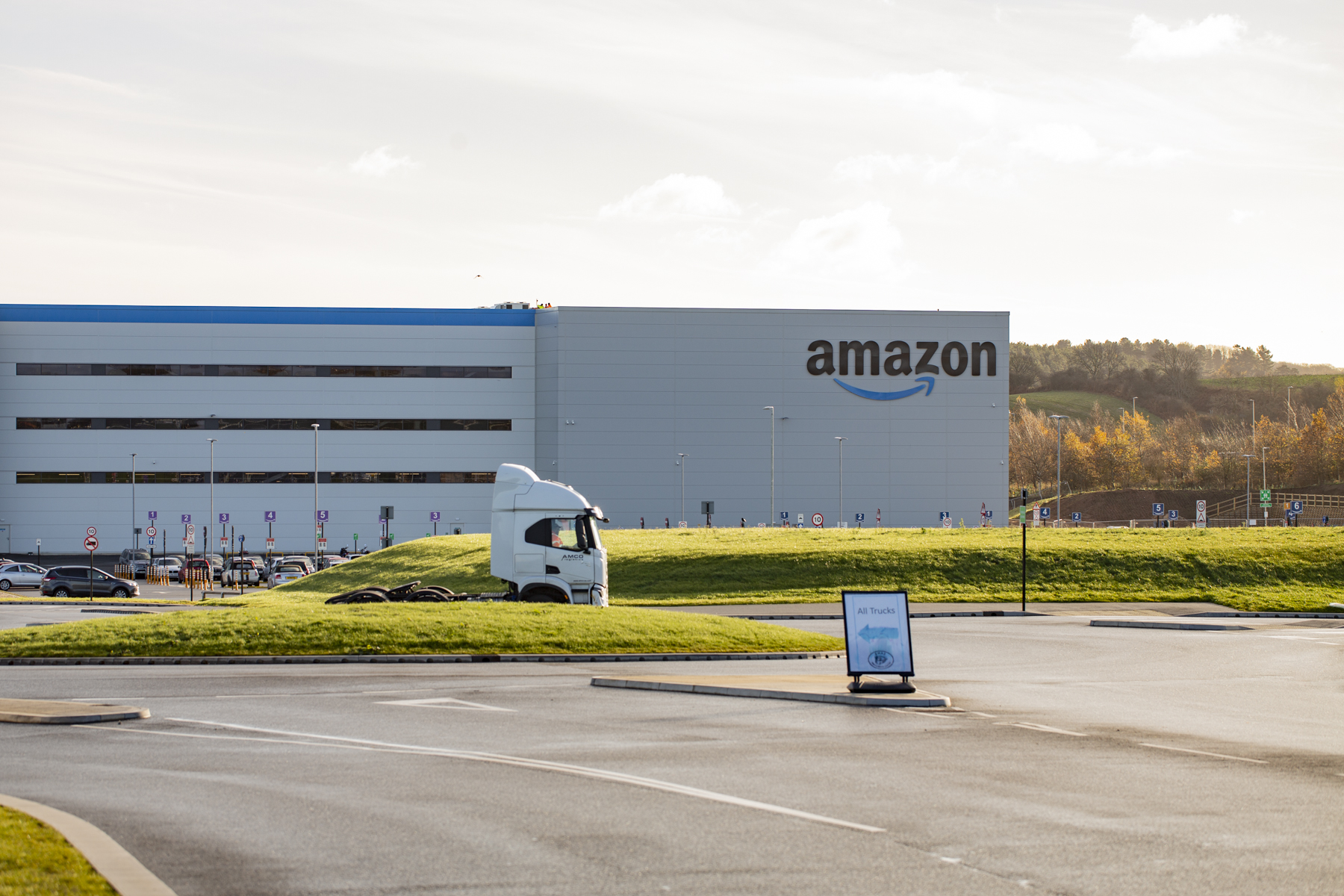
Amazon warehouse on the Mansfield-Ashfield regeneration route. Photograph: Nathaniel White
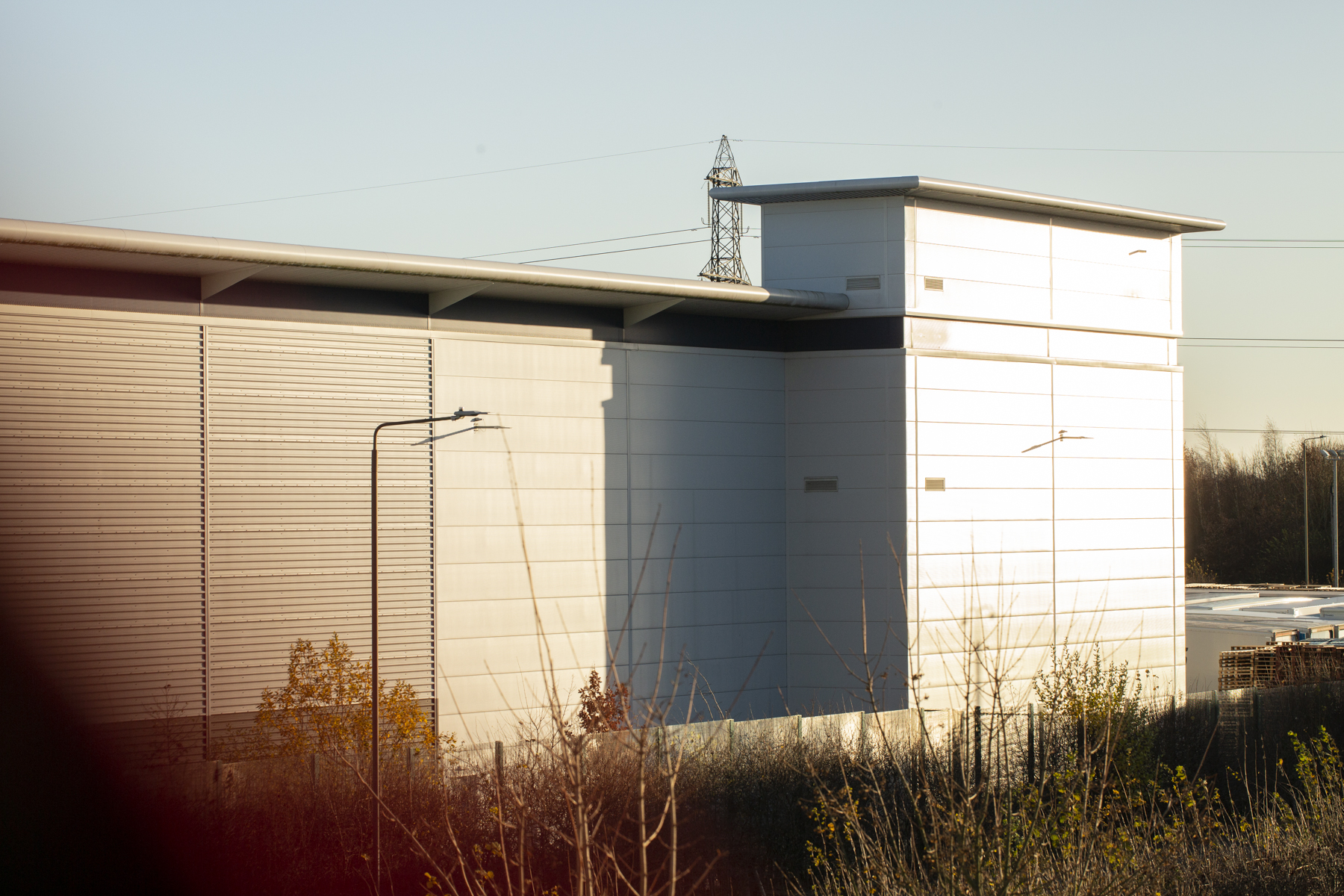
Sports Direct warehouse in Shirebrook. Photograph: Nathaniel White
A new Common Wealth report draws on 121 interviews with citizens, civic leaders and politicians to tell a different story about the past and the politics of ex-industrial places.
Our report analyses the areas around Mansfield and Corby, two post-industrial towns in the East Midlands. This tale of two towns highlights the importance of political renewal and the possibilities for rebuilding a radical coalition.
This map from the collection of the Nottinghamshire Mining Museum shows the locations of the pits around Mansfield circa 1998.
Here, we focus on Mansfield. At the height of the industrial era, the town was surrounded by coal mines.
Many goods were produced locally, especially textiles.
This map of some of the factories in and around Mansfield was assembled with the help of many locals.
The 1984-85 miners’ strike was a watershed moment. Nottinghamshire miners were divided on whether to work or strike, having been reassured by the National Coal Board that they had “jobs for life”. The working miners’ decision to defy the strike helped the government to defeat the powerful National Union of Mineworkers — a decisive blow to working-class power which the union movement is yet to recover from.
With the union defeated, the pace of closures accelerated. Meanwhile, manufacturing jobs were disappearing due to Thatcher’s exchange rate policy and the textiles industry was increasingly under threat from automation and offshoring. When Marks & Spencer moved their knitwear production abroad, many Mansfield women lost their jobs.
Shirebrook, a pit just north of Mansfield, was closed in May 1993. Just over a year later, its headstocks were demolished.
An interviewee called Nicola recalled watching from the science block of her school as the towers crumbled.
In the early 2000s, the site of the colliery was redeveloped using £38 million in public funds and sold to Sports Direct. The immense Sports Direct warehouse now occupying the site is infamous for poor working practices. In testimonies collected by Unite the Union, workers described it as a “gulag” and a “Victorian workhouse”.

Memorial to Shirebrook Colliery. Photograph: Nathaniel White
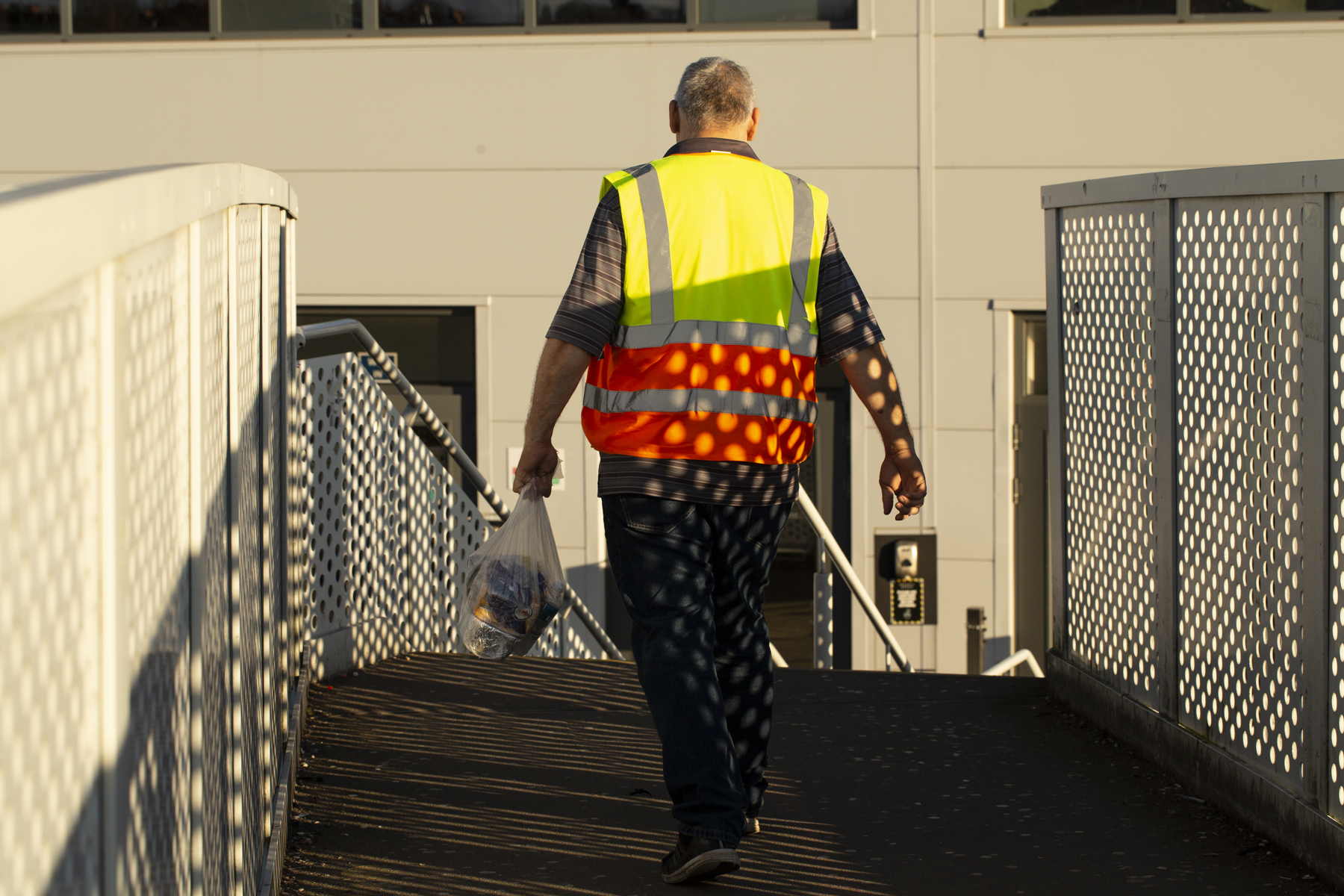
A worker enters the Sports Direct warehouse. Photograph: Nathaniel White
For locals like Nicola, the trajectory of the area fosters a sense of decline and an aversion to politics. Like many others interviewed, she felt politicians were driven solely by greed and personal interest, being “in it for themselves”.
“It's good money innit, for not a lot of work. Have you seen them sat in the House of Commons? I could do that all day, for 140-odd grand a year. Shouting ‘aye.’”
In her view, politicians fail to look after their constituents. “They won't, ’cause they're not bothered about them.”
She intends not to vote anymore.
Interviewees in Corby told us similar stories.
The political discontent of citizens in towns like these has often been explained as the revolt of people in left behind places. The discontent is real, but the framing of ex-industrial towns as “left behind” is misleading.
Having been remade through enterprise zones, regeneration projects and Treasury-imposed job creation programmes, these towns now harbour some of the most footloose and financialised employers in the country. This is the result of active policy interventions.
Places like Mansfield and Corby are not stuck in the past. Rather, they are at the forefront of innovations in financialisation and exploitation.
For example, social care providers were early adopters of zero hours contracts and some have pioneered new forms of tax avoidance. Barchester Healthcare, which runs a care home in Mansfield and another near Corby, has been linked to tax havens. In recent years, the company has received criticism because its CEO received pay 120 times that of the lowest-paid employees.
The Center Parcs holiday village just northeast of Mansfield, a major local employer, is now also owned by a private equity firm. Its owner, Brookfield, has loaded it with billions of pounds in debt, a practice which can threaten the stability of the business, putting jobs at risk.
Meanwhile, the “big shed” distribution centres dotted around both towns play an important role in the portfolios of major property developers, while workers are stuck with insecure contracts and poor working conditions. The Shirebrook Sports Direct warehouse is now owned by a Malaysian pension fund under a leaseback construction, which means revenues that could have boosted wages leak away as rents instead.
Old industrial towns are hugely important sites for contemporary capitalism. But they have been included in the new economy on an adverse footing. Local working-class employment is devalued, as bureaucrats and local leaders are structurally incentivised to attract and cater to credentialed young professionals if they want their towns to be “competitive”.
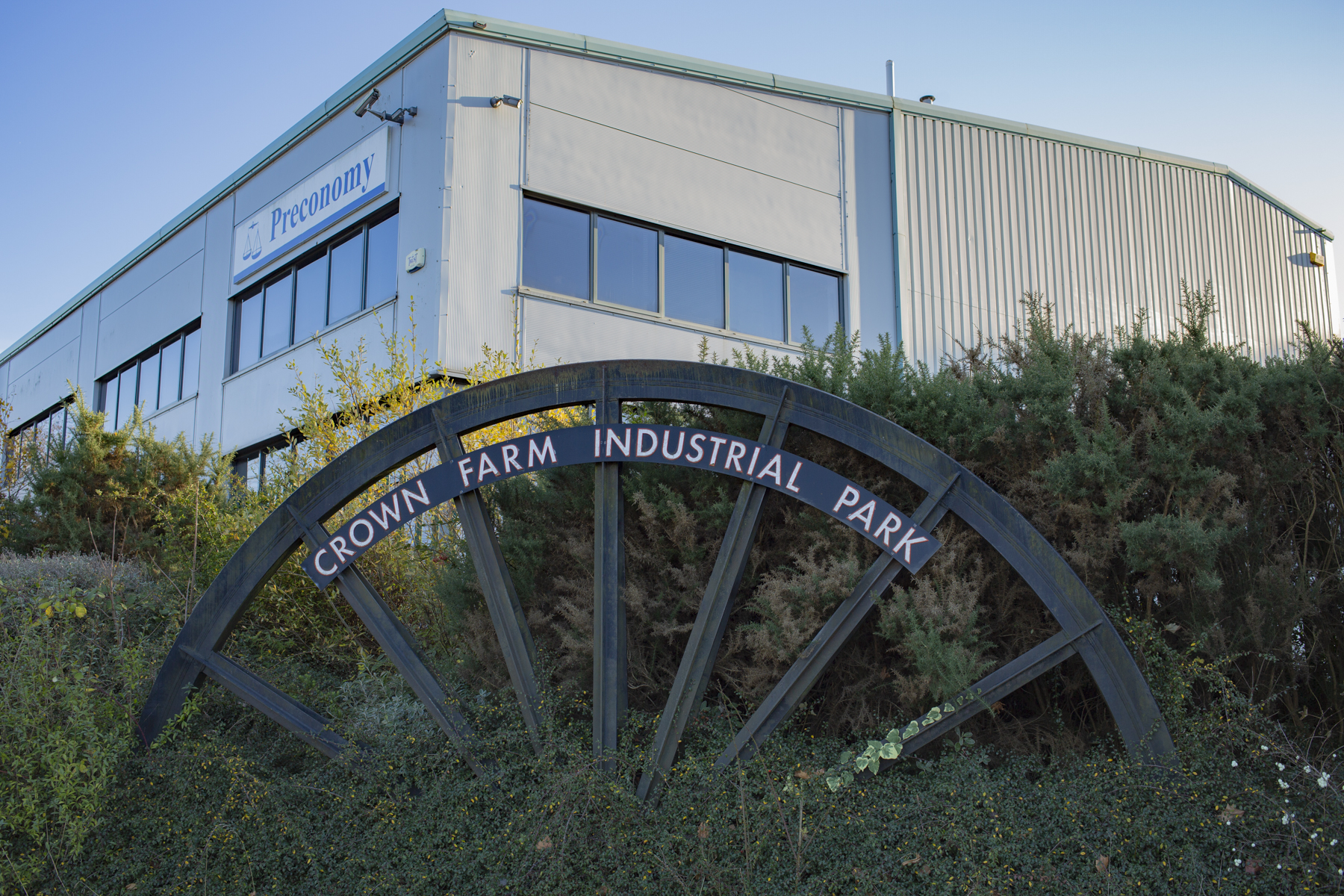
A business park on the former Crown Farm (Mansfield) colliery site. Photograph: Nathaniel White
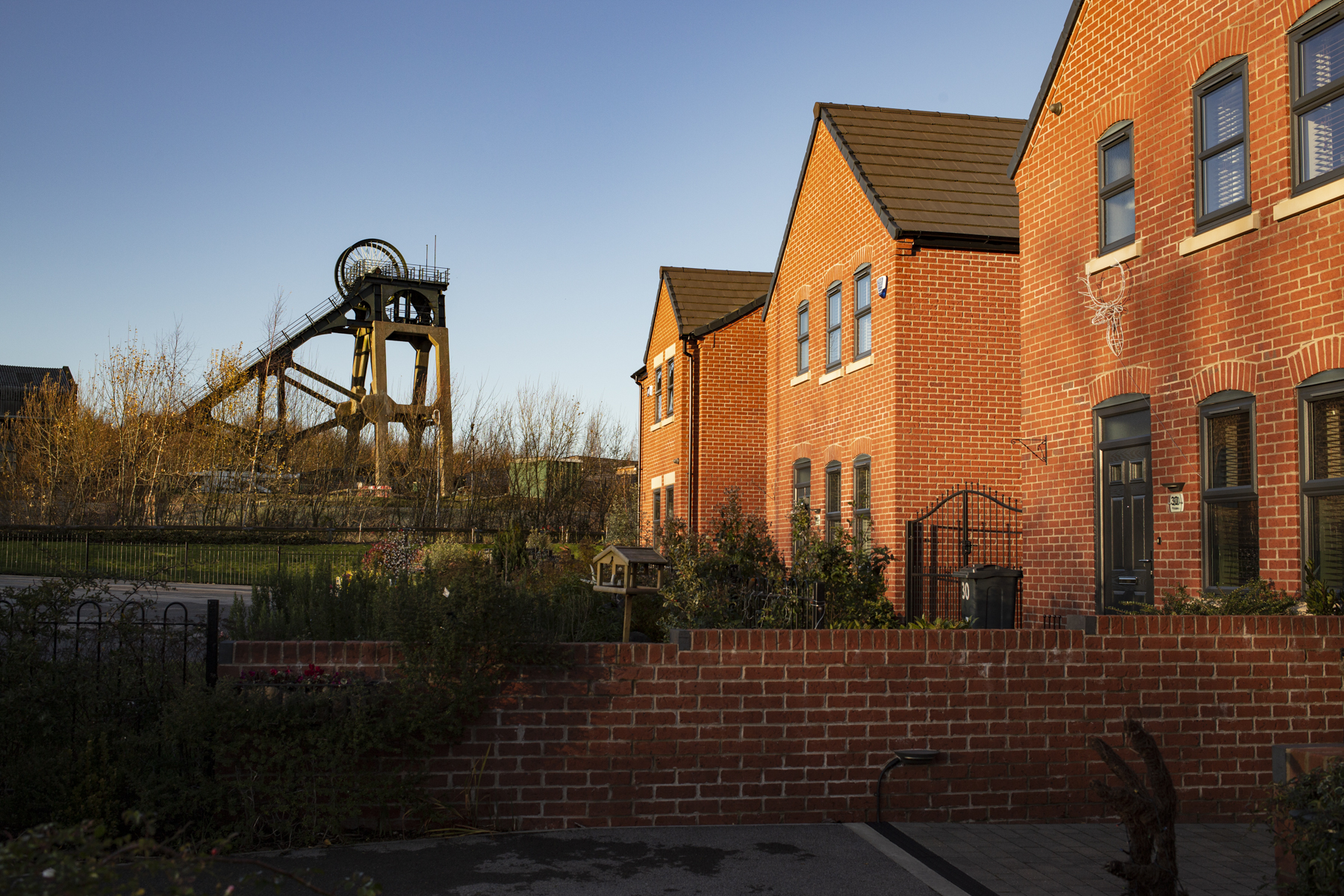
Old headstocks and newbuild housing at Pleasley. Photograph: Nathaniel White
The challenge for progressives is to channel everyday experiences of economic disadvantage and political disempowerment into a transformative agenda.
Common Wealth’s report sets out a progressive strategy for ex-industrial towns centred on political renewal, democratisation of space and workers’ rights.
